Living with disabilities is no barrier to living with dignity and pride
Commemorating the International Day of Persons with Disabilities 2021 in Somalia
3 December 2021 – The International Day of Persons with Disabilities, commemorated on 3 December 2021, shines a spotlight on challenges that people living with disabilities face. The international day, first proclaimed in 1992 by the United Nations General Assembly resolution 47/3, aims to mobilize support for the dignity, rights and well-being of persons with disabilities.
This year’s theme for the day – ‘Leadership and participation of persons with disabilities toward an inclusive, accessible and sustainable post-COVID-19 world’ – increases awareness of the benefits of integrating persons living with disability in aspects of political, social, economic and cultural life and the broader society.
In Somalia, in 2020, 5% of the population was known to be living with disabilities according to a survey conducted by the Government with a UN agency.
On the International Day of Persons with Disabilities, Dr Mamunur Rahman Malik, WHO Representative to Somalia and Head of Mission said, “WHO is one of the few UN agencies which has a policy on disability which was launched on 3 December 2020. The policy serves as the primary framework for implementation of United Nations Disability Inclusion Strategy (UNDIS) across our Organization. Through implementation of this policy, we want to ensure that people with disability in all their diversity are included meaningfully in our Organization’s work leaving no one behind. We must listen to the experiences of people living with disabilities and see how we can best support their integration in the society.”
Facing less discrimination than before
When he was 8 years old, Cade Sheekhdoon started to lose his sense of feeling in his arms and legs. Soon, he lost his sense of touch in his hands and lower legs and his bones hurt too. Cade was diagnosed with leprosy – he had contracted the disease from a neighbour in Hiran, where he lived. As a result, Cade had to have some of his fingers removed – a mentally and physically excruciating and traumatic experience for any child.
When he was young, not many people knew about leprosy. People would throw stones at Cade and ask him to try and eat them. Although now he feels the discrimination against him has reduced, there are still people who believe people with disabilities like leprosy eat children. Sixty years after he was diagnosed, even though he feels he will never be able to integrate into the society “normally”, Cade just chooses to focus on the positive part of life – that the discrimination against him has reduced considerably and that he now has a beautiful family of his own.
“Hoping to see persons with disabilities run the country one day”
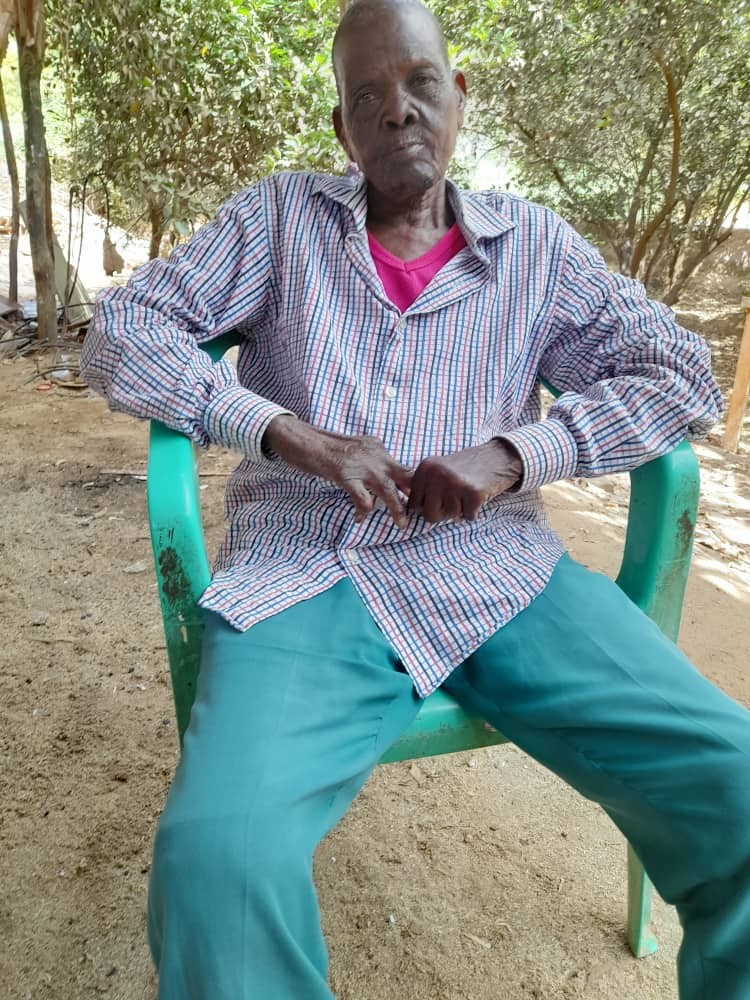 Cade from Hiran shares his thoughts about creating a better world for persons living with disabilities. Credit: WHO/Somalia
Cade from Hiran shares his thoughts about creating a better world for persons living with disabilities. Credit: WHO/Somalia
Cade from Hiran shares his thoughts about creating a better world for persons living with disabilities. Discussing the theme for the International Day of Persons with Disabilities, Cade says he hopes to see someone with a disability among the leaders running Somalia one day, so that he or she would understand the needs of persons with disabilities and make provisions to improve their lives.
Cade adds that he would like to see the federal and state ministries of health and all of Somalia’s partners develop functional equipment that would help people with different disabilities. He has heard in many countries governments and their partners have special cars, ramps and other specialized products to cater for people with special needs. This is what he feels Somalia lacks.
“As the world tries to deal with and recover from the COVID-19 pandemic, I hope people can realize how vulnerable one can feel if they are sick or different in any way from what we view as normal. I hope people make an effort to understand the challenges faced by people with disabilities, and work together to help them.”
World AIDS Day: Reaching more people with HIV services and reducing inequalities
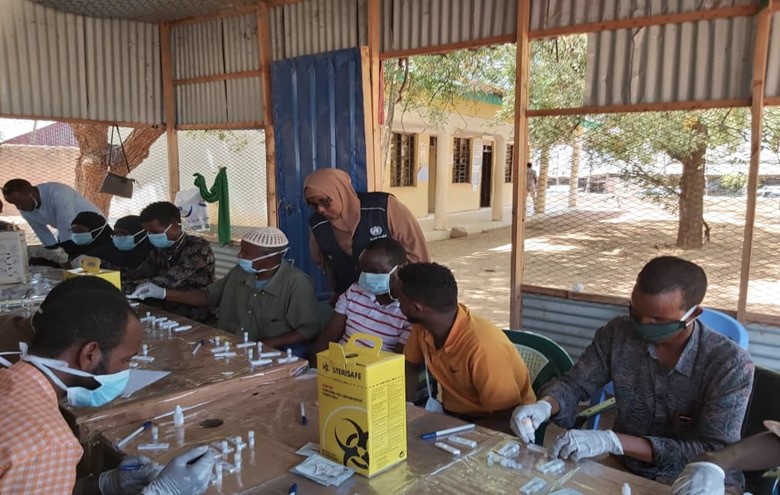 Teams conducting External Quality Assurance for HIV testing to verify quality of laboratory testing in Gedo
Teams conducting External Quality Assurance for HIV testing to verify quality of laboratory testing in Gedo
1 December 2021 - World AIDS Day is commemorated on 1 December every year to shed light on the plight of people living with human immunodeficiency virus (HIV) and acquired immunodeficiency syndrome (AIDS), and the challenges they face. This year’s global World AIDS Day is being held under the theme “End inequalities. End AIDS”. In the Eastern Mediterranean Region of the World Health Organization (WHO), the campaign has “Getting back on track – Focus on testing” as a regional theme in response to the disruption of HIV testing services during the COVID-19 pandemic, with a special focus on reaching the people left behind.
Given that HIV remains a major public health issue and is still a pandemic around the world, WHO is calling on global leaders and communities to rally to address the inequalities that drive AIDS and to try to reach those who do not have access to essential HIV services. The growing inequality, if not addressed, can only fuel and aggravate the divide between those having access to HIV testing and services and those who do not have access to testing, treatment and care.
HIV prevalence in Somalia
Periodic surveys conducted on the prevalence of HIV in Somalia have shown that the rate of infection has been dropping over the last 14 years. The findings of a 2014 survey showed that the HIV prevalence in Somalia had reduced to a level that could be classified as a low-level epidemic in all the states. The most recent survey, conducted during 2018, showed that average antenatal HIV prevalence across the country stood at 0.1% for all states. By geographical area, it was at 0.15% in Somaliland, 0.17% in Puntland and 0.04% in other federal member states. Despite the overall decline, the more dramatic drop in Somaliland, from just over 1.0% between 2004 and 2010, to 0.15% in 2018, meant that for the first time in 14 years of surveys, HIV prevalence in Puntland stood above that for Somaliland.
“The low HIV prevalence in Somalia can be attributed to Somali culture and society, and few risk factors as a result of behaviour,” said Dr Sadia Abdisamad Abdullahi, National HIV/AIDS Programme Manager.
Despite the general decline in HIV prevalence across Somalia, there are locations such as Garowe and Bosasso in Puntland where the infection rates have merely levelled off, with the risk of increasing yet again. The next survey among pregnant women is scheduled for 2023.
Salim Musa* – diagnosed with HIV in March 2014 and an advocate for supporting HIV and AIDS patients in Somalia – thinks the HIV rates may be higher in some groups and locations that were not covered in recent surveys. It is fairly easy for Somalis living in urban areas to access HIV tests and antiretroviral therapy (ART) free of cost in 17 health facilities in various states. For those in rural areas, it can be difficult for people to get tested, explains Salim. Most people do not even know about the symptoms of HIV and where to access services. It is usually at a late stage that many people living with HIV contact doctors for support.
Despite the challenges, by September 2021, 3784 patients were receiving ART at the 17 health facilities spread across different states, 72.5% of whom were already on the newer, more effective dolutegravir-based regimens.
Families, workplaces, health care workers and policies are key to bringing about change
Salim feels he was lucky – he credits his father, a doctor, and his well-educated siblings for encouraging him to seek early treatment after his diagnosis, and for giving him the confidence to deal with his struggles in life.
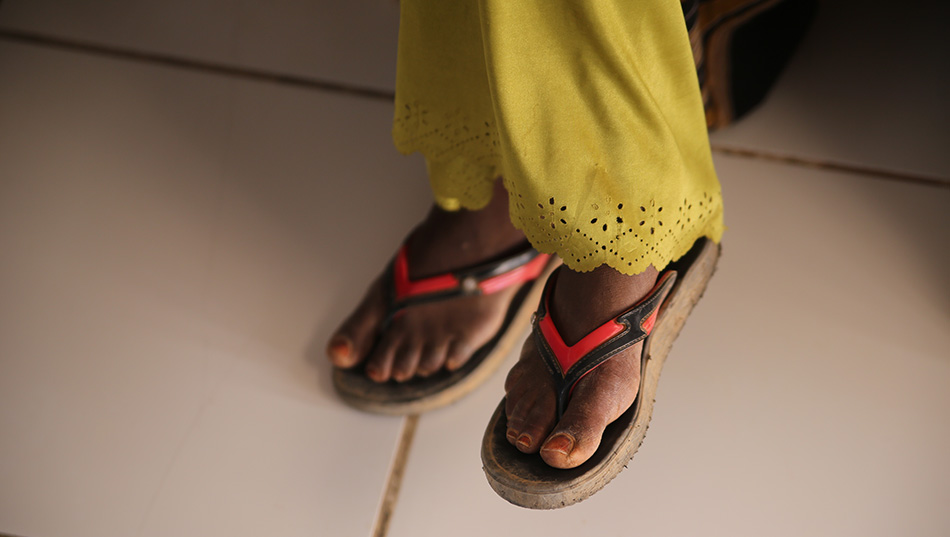 Persons living with HIV still face a lot of stigma, including in health facilities, in Somalia
Persons living with HIV still face a lot of stigma, including in health facilities, in Somalia
There is still a lot of stigma and shame associated with HIV in Somalia though, Salim adds. Years ago, at his workplace, people treated him very badly, and requested him to work from home so that no one could be in touch with him. This experience isolated him and forced him to leave to look for a more empathetic team. Now, Salim wears many hats – he works with nongovernmental organizations, vulnerable populations, the government, AIDS commissions, and technical advisors to advocate for the rights of people living with HIV. People he speaks to have been fired from their jobs or denied employment over their HIV positive status.
When Salim first visited a health facility to confirm his HIV status, he was surprised to see that the director of the facility, who tested him, was judgemental and overbearing, and did not respect him and other patients.
Salim shares some of the stories of patients he has worked with. One day, he spoke to a lady who was living with HIV and had fractured her leg. She was in excruciating pain. Even though she had enough money, Salim describes, not one doctor from nine hospitals she visited was ready to help her because of her HIV status.
In another case, a lady who was living with HIV contracted COVID-19. She rushed to the hospital when she needed oxygen but, sadly, no one helped her and she died. Another woman was forced to deliver her baby herself right at the doors of a hospital when medical personnel refused to let her in, as she was known to be HIV positive.
“I feel really sad when I hear these stories,” said Salim. “I feel that policy-makers should help enforce systems and oversight mechanisms to ensure that health personnel do not discriminate against any patients at all, including those living with HIV. No one should have to miss out on receiving medical care, and no health personnel should deny anyone services. They are in a profession where they must help others.”
“We must all work together to put an end to inequalities that leave Somalis out of the health service system. Decision-makers, health facilities, families and individuals all need to provide support to people living with HIV and prevent the spread of this disease,” said Dr Mamunur Rahman Malik, WHO Representative to Somalia. “Early testing and treatment can help people with HIV to battle this disease in good time.”
*Name changed to protect identity.
Related link
Stopping the traffic to offer life-saving care during emergencies
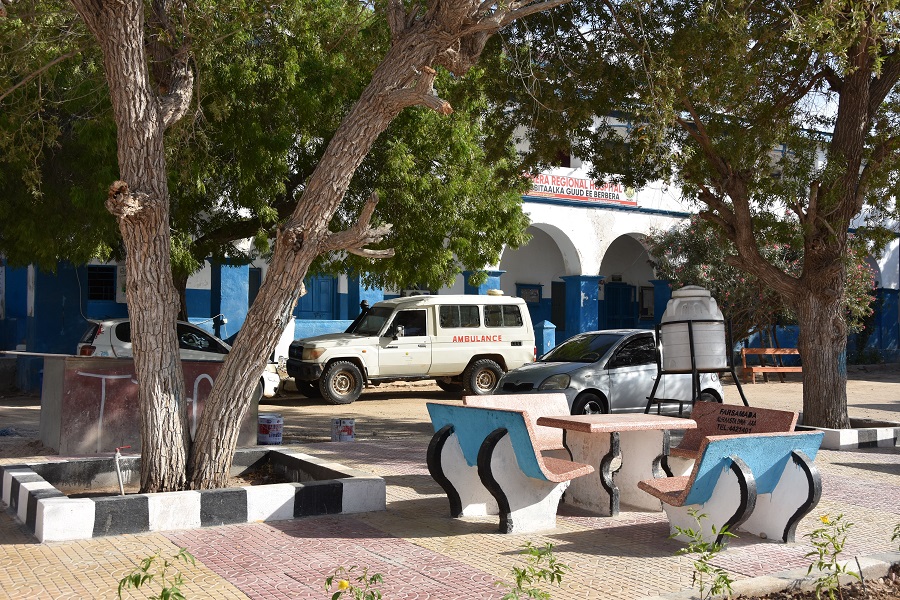 Photo credits: WHO/Andrew Kent
Photo credits: WHO/Andrew Kent
22 November 2021 – Injuries are one of the major public health concerns in Somalia, owing to road traffic accidents and ongoing conflicts. From blast injuries alone, approximately 80 lives are lost every month, and for every death related to an injury, there are 20–50 non-fatal injuries that result in some form of disability, impacting quality of life, productivity and financial security.
There are 2 primary providers for first aid in Mogadishu ─ Aamin Ambulance and the Somali Red Crescent Society ─ but between them they have only 21 functioning ambulances to serve a large population. Approximately, one third of these deaths related to injuries could be avoided if community trauma care, paramedical services and transportation were made available. However, there is currently no effective pre-hospital care system beyond Mogadishu and after emergencies, patients are rushed to hospitals through their own means, often in a private vehicle or carried by relatives.
The lack of an organized pre-hospital transportation system, along with no organized community first aid means that the delay between the point of injury and first contact with the hospital will lead to increased likelihood of death or disability. The situation is further compounded by the lack of a formal organized transport system to move patients from one hospital to another, when they require more complex interventions.
Receiving the right care to avoid injuries and death
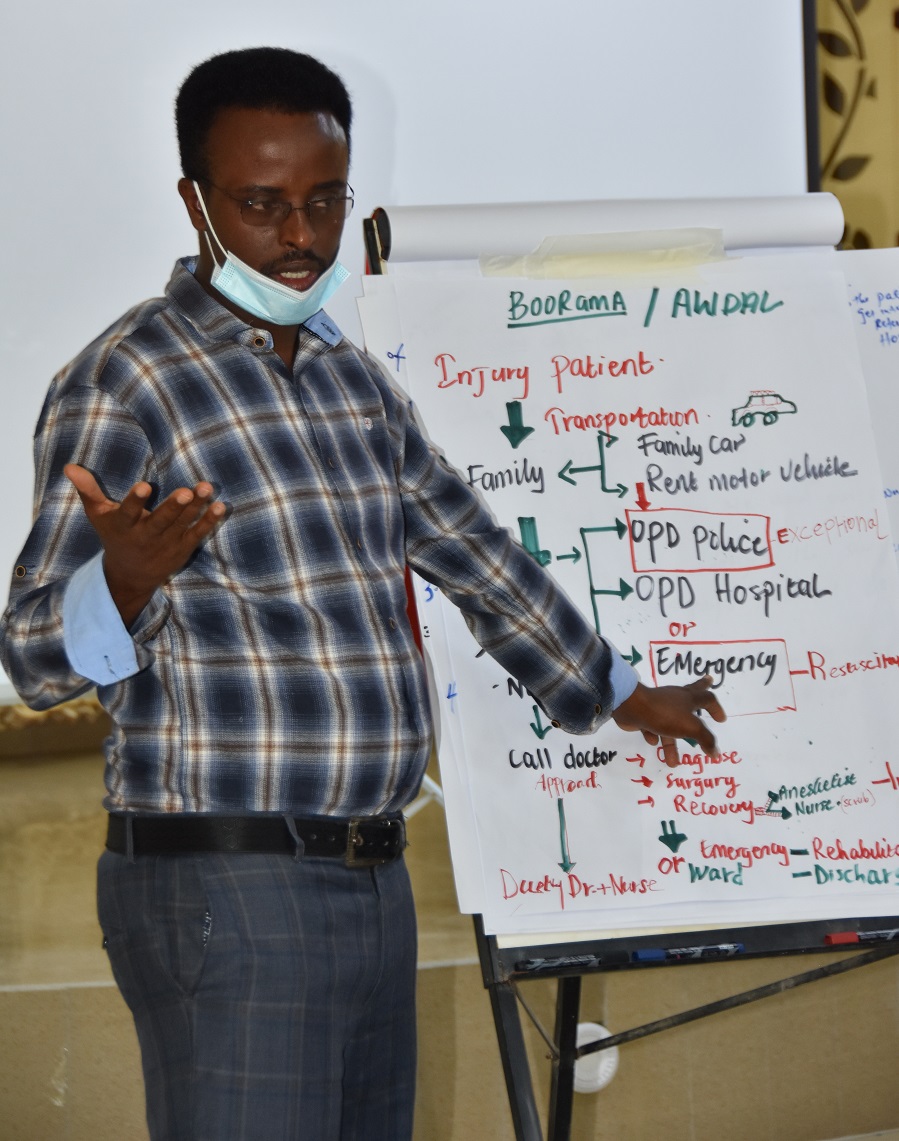
Dr Musa Haji, who serves as a first responder to emergencies at the Keysaney Hospital in north Mogadishu, knows the importance of providing early trauma care close to the point of injury.
The driver of the rented car and Ali’s family were not conversant with how to deal with the injuries sustained. If his family had called the local pre-hospital provider, they could have prevented the secondary, serious spinal injury, as Ali would have received professional advice and support.
Investing correctly to reduce high burden and cost of injuries
In low-income countries such as Somalia, families face high burdens and costs of injuries. Yet, this burden can be reduced significantly. Paradoxically, even though Somalia faces recurrent emergencies and natural disasters, it does not have the capacity to offer this crucial support equitably to all of its communities.
“By investing in injury care, we can help communities and countries at large to avoid the exorbitant costs of early death, complications, prolonged recovery, and prevention of disability. The true costs of all these to a family in a fragile, low-income country such as Somalia can be really high,” said Dr Mamunur Malik, WHO Representative to Somalia.
Pre-hospital care key to survival in emergencies
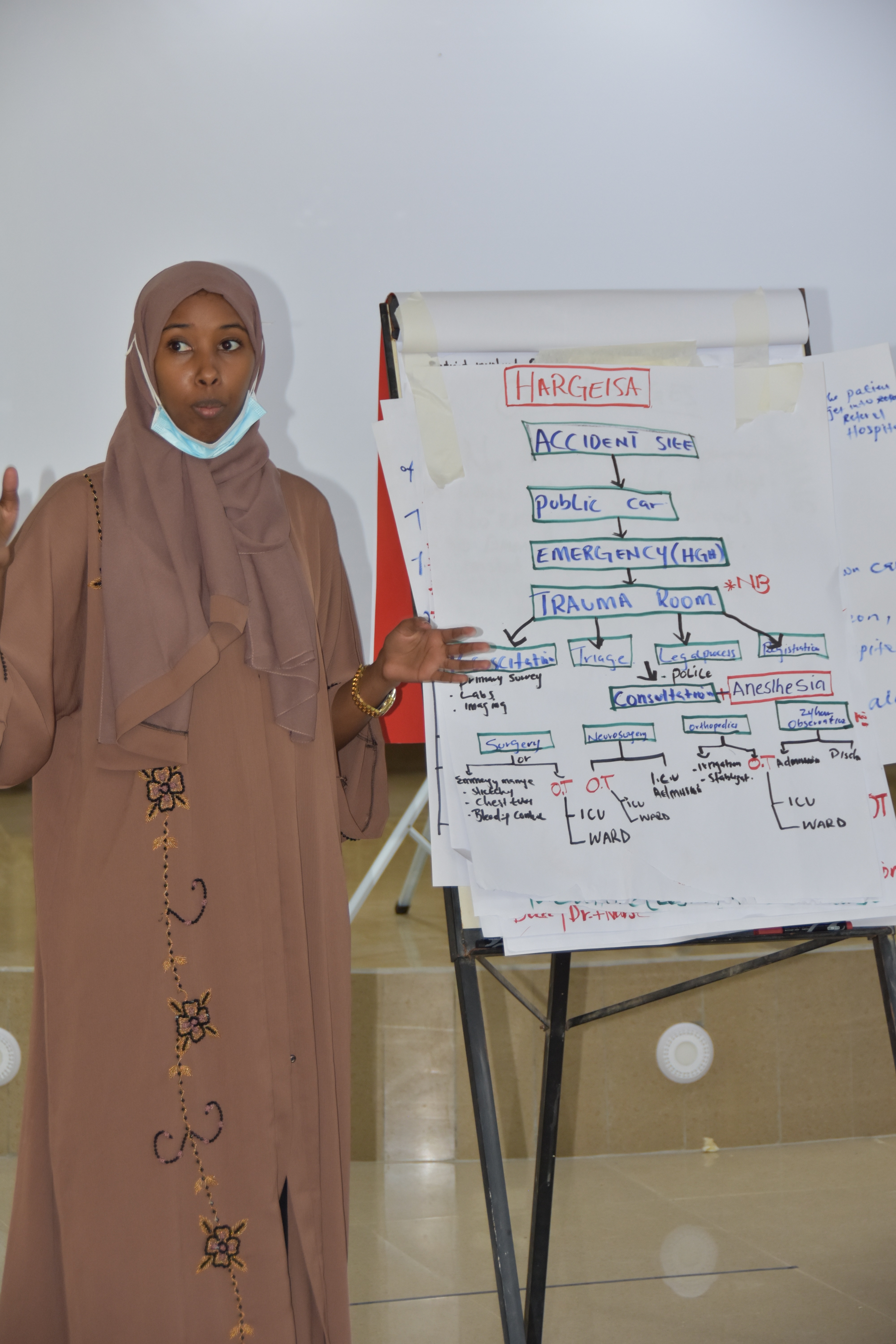
WHO has teamed up with the federal and state ministries of health to build Somalia’s capacity to offer timely and crucial, life-saving prehospital care. This is an integral component of both the emergency care pathway, a journey that begins at the point of injury through to the hospital, and a patient’s referral pathway, which facilitates the transfer of patients with medical conditions from the point of injury or one health care facility to a health facility that can offer the right attention.
“The training and support that WHO and the Government are offering to first responders will serve as scaffolding for emergency health services in Somalia, as we are empowering both health professionals and eventually lay people at the front lines, from the point of an incident or injury to facilities that can care for victims, right back to victims’ reintegration in the society,” added Dr Malik.
As part of this initiative, a team of experts from the WHO Regional Office for the Eastern Mediterranean and WHO country office conducted a workshop on 2 November 2021 to engage with 15 participants from various ambulance services, mostly based in Mogadishu.
“Our findings have revealed that between 60 and 80% of all trauma deaths in humanitarian emergencies across the Eastern Mediterranean Region, occur before reaching the hospital, frequently referred to as dead on arrival (DOA). Community volunteers and frontline providers lack training and supplies for basic life-saving interventions, such as haemorrhage control and airway management. It follows then, that by focusing on immediate and early trauma management as the first phase of this initiative, a significant number of deaths can be demonstrably avoided,” said Dr Sara Halimah, WHO Regional Trauma Specialist.
During their discussions at the workshop, participants also discussed the current situation and low-cost, high-impact solutions to establishing pre-hospital care.
“People don’t make way for us”
Participants also highlighted some of the challenges they face, including no roads and insecurity, which hinders access to people in need.
“At times, when emergencies occur, families of victims don’t call or use us. They prefer to use private vehicles, as they don’t understand what we do, and why we would help them,” said Dr Abdirahman Ali Dahir, Anaesthetist and Consultant from the Aamin Ambulance services. “In many cases, in traffic, people don’t make way for us, as they do in developed countries. The lack of community awareness is a big challenge for us which slows down our response during emergencies.”
In addition to this challenge, most states do not have ambulances. On the limited occasions when ambulances have qualified staff, they do not have adequate life-saving equipment, such as torniquets that can help reduce severe bleeding, and staff cannot access standard accredited courses or training to help them refresh their knowledge, skills, and reaction time during emergencies.
Given the need for frontline emergency responders to continuously develop their skills, workshops like this will help to develop manuals and a roadmap for future training programme. This in turn will have a positive impact on enhancing emergency and trauma care services in the country.
A forgotten conundrum: regulating the use of antimicrobials in a fragile context
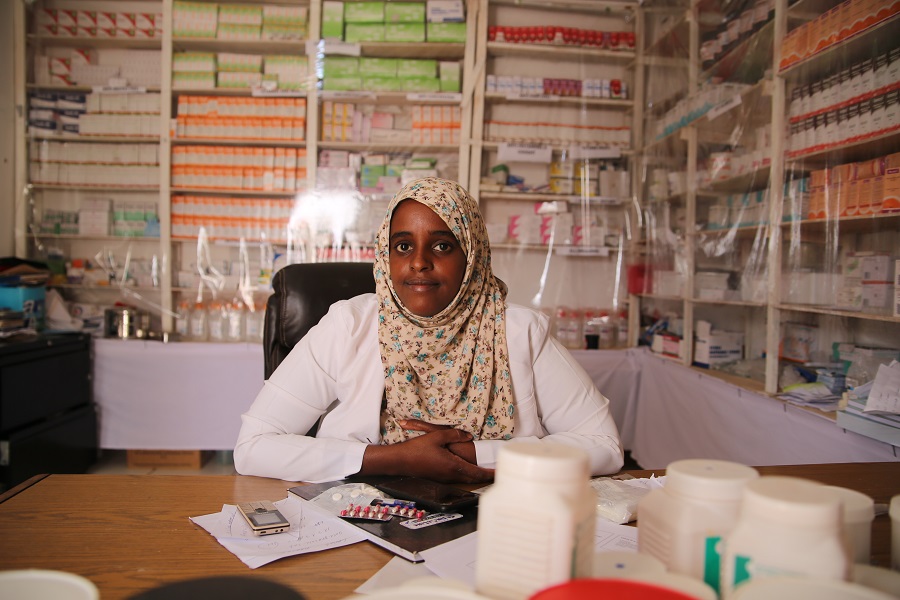 Credits: WHO
Credits: WHO
17 November 2021 – World Antimicrobial Awareness Week, commemorated from 18 to 24 November every year, aims to draw attention to the crucial issue of the proper use of antimicrobials, such as antibiotics, antivirals, antifungals and antiparasitics.
This year, the theme for the campaign is to ‘Spread Awareness, Stop Resistance’. The theme calls on 'One Health' stakeholders, policy-makers, health care providers, and the general public to be antimicrobial resistance (AMR) awareness champions.
Improper use of antimicrobials a root cause of resistance
The lack of a functioning national medicine regulatory authority, coupled with unregulated private pharmaceutical suppliers, personnel and quality of medication, has resulted in the circulation of substandard imported medicines and AMR in Somalia. In addition, the misuse and overuse of antimicrobials are the main drivers in the development of drug-resistant pathogens.
Anecdotal evidence states that health care professionals tend to oversubscribe antibiotics, offering them over the counter, without prescriptions, and often without the right advice. Together, these challenges have encouraged the spread of AMR, whereby microbes, such as bacteria, parasites, viruses and fungi, become resistant to antimicrobials. As a result of the high incidence and prevalence of AMR, it is likely that prescription medicines are becoming less effective at fighting infections, which in turn is increasing the risk of disease spread, severe illness and death.
Joining forces to “spread awareness, stop resistance”
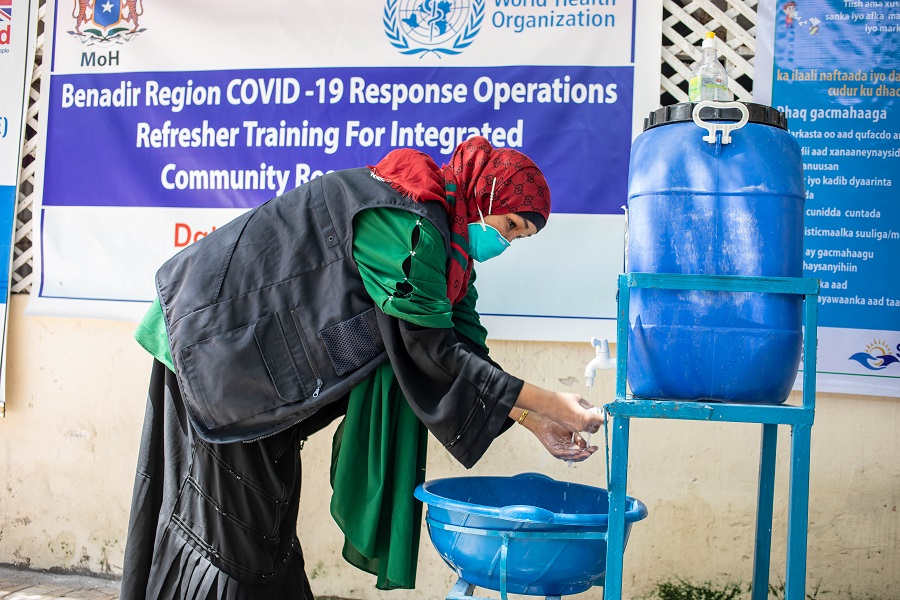
“While antimicrobial resistance is a global issue, in Somalia, we can reduce resistance to antimicrobials only if all stakeholders – policy-makers, health care providers and community members, pharmaceutical suppliers – play their role in spreading awareness about the right use of medication, prevention of resistance, and galvanizing consistent action around this topic,” said Her Excellency Dr Fawziya Abikar Nur, the Federal Minister of Health and Human Services in Somalia.
She added that policy-makers can help to design and implement policies to regulate the importation, sales and quality of medications. Communities can be more responsible with the use of medication, noting when to use antimicrobials, and to complete courses once started, for instance. Health professionals can be careful not to overprescribe medications and to dispense only high-quality medication. Agencies such as the media can support to spread the right messages.
Actions being taken to address antimicrobial resistance
In 2020, Somalia developed a national action plan to combat AMR, with support from the World Health Organization (WHO). The plan, which is yet to be endorsed formally by the Federal Government, outlines 4 pillars that would help control AMR — raising awareness, increasing surveillance of cases of drug resistance to infectious diseases, infection prevention and control (IPC), and the proper use of antimicrobials.
Recognizing the interconnectivity between humans, animals and plants outlined in the ‘One Health’ approach, the national action plan also advocates for the prevention of AMR at the human-animal interface and in food chains, by raising awareness as well as by implementing concrete health actions.
Highlighting ways in which Somalia and its partners can address this situation, Dr Mamunur Rahman Malik, WHO Representative to Somalia said, “Education is a key component in driving action. Even though we have seen many other urgent health issues such as COVID-19 take over the limelight, we must have conversations about the impact of antimicrobial resistance on the health of both humans and animals, and to incorporate this topic at all levels of health education.”
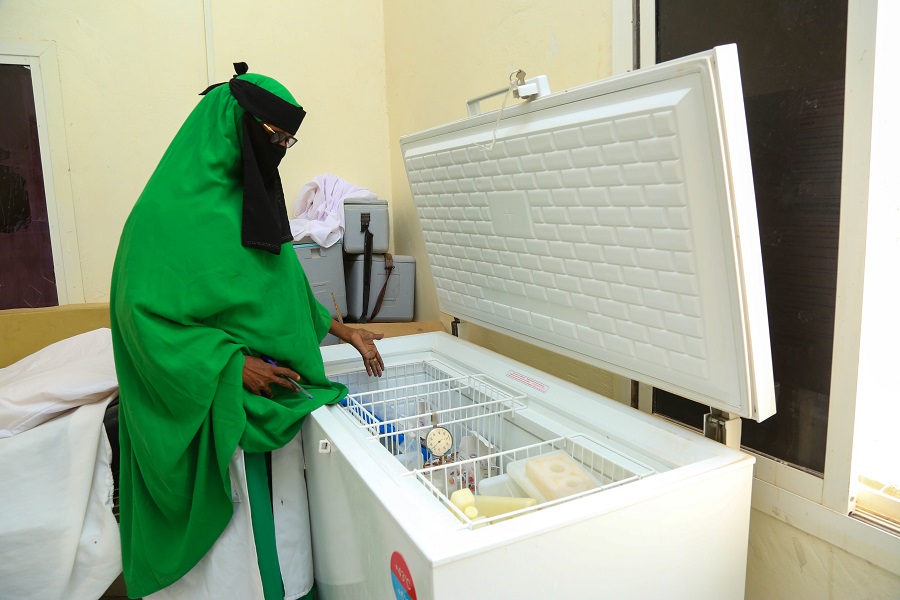
AMR remains a global health and development threat. It requires urgent multisectoral action in order to achieve the Sustainable Development Goals (SDGs). WHO has declared that AMR is one of the top 10 global public health threats facing humanity. The cost of AMR to the economy is significant. In addition to death and disability, prolonged illness results in longer hospital stays, the need for more expensive medicines and financial challenges for those impacted. Without effective antimicrobials, the success of modern medicine in treating infections, including during major surgery and cancer chemotherapy, would be at increased risk.
Somalia will celebrate the week through awareness raising sessions among health care providers and policy-makers in the country, as well as through committing to implement the national action plan for AMR, costing the national action plan, taking concrete actions for understanding the burden of AMR in the country through point prevalence studies, and introducing a sentinel-based surveillance system for regularly monitoring the threat and trend of AMR in the country. Building country capacity for detection and responding to the emerging threat of AMR in the country will be at the heart of these activities.
For additional information, please contact:
Khadar Hussein Mohamud
Head of Coordination and Communication
Federal Ministry of Health and Human Services, Somalia
+252 615 602 637
Fouzia Bano
WHO Chief of Staff ai, Communications Officer
+252 619 235 880


